DJ Mojo (aka Joel Semchuck) “I see the virtues and the pitfalls of both (vinyl and digital mixing platforms), and as such, I think I can offer an objective opinion that respects and appreciates where we’ve come from, but also acknowledges some of the benefits of where we seem to be headed. There are impassioned and entrenched positions on both sides, and I respect and understand where each are coming from. I hope by offering a balanced point of view, mutual understanding can be achieved.”
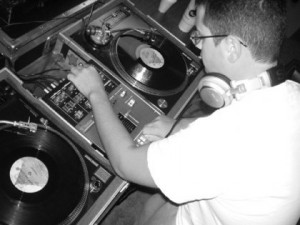 (January 2012) As you approach your destination, you begin to hear the sounds that have become the soundtrack of your soul. Booms, squelches, bleeps. You walk through the door, the sounds coalescing into that track you heard last night. Whatever the hell that track is, you’ve got to have it! Half running towards the DJ spinning this madness on the turntable, you try to get a peek at the label. As you get closer, you recognize the cat on the decks is the guy who hooked you up with some wicked new breaks last week. He catches your eye, recognizing the shared appreciation, and hands you this musical delicacy right off the platter, before gesturing towards the new release wall where there’s bound to be a dozen or more musical gems waiting. Grabbing a stack off the wall and making your way to one of the listening stations (at least they’re not crammed today); you rub a record edge on your pant leg to crack open the shrink-wrap and gingerly place the record on the platter. After listening to your stack, you’ve found a number of cool pieces. Probably more than you can afford to take home – begging the question, do I really need to eat today?
(January 2012) As you approach your destination, you begin to hear the sounds that have become the soundtrack of your soul. Booms, squelches, bleeps. You walk through the door, the sounds coalescing into that track you heard last night. Whatever the hell that track is, you’ve got to have it! Half running towards the DJ spinning this madness on the turntable, you try to get a peek at the label. As you get closer, you recognize the cat on the decks is the guy who hooked you up with some wicked new breaks last week. He catches your eye, recognizing the shared appreciation, and hands you this musical delicacy right off the platter, before gesturing towards the new release wall where there’s bound to be a dozen or more musical gems waiting. Grabbing a stack off the wall and making your way to one of the listening stations (at least they’re not crammed today); you rub a record edge on your pant leg to crack open the shrink-wrap and gingerly place the record on the platter. After listening to your stack, you’ve found a number of cool pieces. Probably more than you can afford to take home – begging the question, do I really need to eat today?
A similar story can be told at the used record shop you’ve recently found across town. Based on the amount of vinyl gold you’ve found here the past few weeks, it doesn’t seem like many others know about it. And for now, you intend to keep it that way. On bended knee, you dig through dusty crates of yesteryear’s classics. Making your way past a run of old Carpenter’s LPs, there’s a Coltrane… tempting, but you need something you can play tonight. And there it is. A record sleeve featuring a logo you recognize. Copyright says 1991; this is bound to be good. Of course you won’t know until you get it home; this place has no fancy listening stations. But at 99 cents, what have you got to lose? The owner of this place is some old beatnik dude who only listens to jazz. He hasn’t got a clue what’s buried between the Pat Benatar and the “Living Stereo” classics. While it’ll take you several cramped hours to make your way through it all, finding even only two or three pieces here today will make it all worthwhile.
At the end of a long day, as you prepare to enjoy the fruits of today’s haul on your 1200′s, your second wind kicks in as the beats begin to pulse. There were no Monster drinks back in the day. You’re ready to kick off a three hour mixing session, fueled by the excitement of what you came up on today. Then, it’s off to your gig.
Many of today’s up and coming DJ’s aren’t familiar with these experiences. I share them, not just to nostalgically reminisce about the “good old days,” but also to share my perspective on a debate currently being waged. A debate that pits vinyl against digital mixing platforms. I too have engaged in this debate… with myself. I see the virtues and the pitfalls of both, and as such, I think I can offer an objective opinion that respects and appreciates where we’ve come from, but also acknowledges some of the benefits of where we seem to be headed. There are impassioned and entrenched positions on both sides, and I respect and understand where each are coming from. I hope by offering a balanced point of view, mutual understanding can be achieved.
Full disclosure and auto sync ::
In the interest of full disclosure, let me state that I come from a completely vinyl background. I started spinning in 1992, when all we had was vinyl. I have a decent-size vinyl collection that I treasure probably more than any other material thing I own, and I continue to add to it when opportunities present themselves. I cringe when I hear friends talk about digitizing and selling their collections (unless they’re gonna give me first crack at it). Having said all that, I share one other main passion besides music and that is technology. I enjoy gadgets and geeky tech things. I like keeping up on the new “toys.” I have reviewed or demo’d several of the new mixing environments on my blog. And yes, I have even done some development in the area of digital music interfaces myself, and this is an area I hope to continue to explore. Some may see a contradiction in my simultaneous love for vinyl and open-mindedness towards new platforms. I see it as a natural progression.
Before I move any further, I want to make one thing absolutely clear, and that is that I consider auto sync features an abomination and an insult to DJ’s everywhere. I understand the marketing gimmick that makes these features desirable, but I really wish the software development firms would just remove them completely. Now sure, there have been a variety of auto synch functions out on the market for years, from BPM counters to mixers that would flash LEDs in time with the tempo, but, beat matching is at the heart of being a DJ. At its core, this is the primary, fundamental aspect of what makes a DJ, a DJ. Even if you have no notion of key, can’t juggle or scratch, have never laid a hand on the EQ, can’t read a crowd, and have crappy taste in music, at least if you could match beats, you had a place to start. How anyone could think that cheating with auto synch can make them a DJ is beyond me. The obvious truth is that anyone can auto synch, you cheapen the craft and all those involved when you resort to this. Besides, while beat matching takes some longer to learn than others, it’s a skill that, like riding a bike, will be with you for the rest of your life. The only time I could possibly accept the use of autosync is if an established, accomplished DJ used it as a means to pull off some really mind-blowing, crazy magic. And even then, it’s questionable, because any established DJ should be able to match a beat within a few seconds. So, to reiterate, regardless of which platform you choose to become a DJ, learn to beat match. Period.
What is it about vinyl? ::
So what is it about vinyl? I love the feel of vinyl. I love the record sleeves and the artwork that is common on many sleeves and labels. It’s easy to organize in a crate or a bag. And there’s no question that when it comes to tactile feedback, it is superior to anything else out there. The scratching on some of the new platforms is pretty close, but there is always that hint of latency that seems to keep it from feeling exactly like vinyl. It provides visual feedback and you can mark your records and personalize them. Some whine about how heavy crates are. I always enjoyed walking into an event with a crate. It was an announcement. People immediately knew what you were there for. And let’s face it, for the time being at least, vinyl holds its value. Actually, depending on the record in question, vinyl potentially increases its value. This brings me to another, more esoteric point. Vinyl, as opposed to today’s digital media, had intrinsic value. That value was built on two key aspects – 1. Vinyl was considerably more expensive than today’s digital tracks, and 2. Vinyl was a limited resource. The cost of a record, at $10.00 minimum for an import, or even $5.00 or $6.00 for a domestic, meant that you had to be extra picky every time you went shopping. Looking back, the cost of the records, as much as it hurt financially sometimes, acted like a quality control filter. I’m not saying I’ve never bought a crappy $10 record, but generally, you could afford fewer “misses” at $10, then you can at 99 cents, or free. The only way one was fortunate enough to get free music back then was to become known enough to get some promos.
How anyone could think that cheating with auto sync can make them a DJ is beyond me. The obvious truth is that anyone can auto sync, you cheapen the craft and all those involved when you resort to this. Besides, while beat matching takes some longer to learn than others, it’s a skill that, like riding a bike, will be with you for the rest of your life.
Then there’s the limited quantity issue. A first run pressing might have as few as 1,000 copies distributed worldwide. Some stores only picked up two or three copies of a given piece, meaning you had to be lucky enough to have it get past the DJs who worked there, who always had first dibs. This is why so many of us took low paying record store jobs. And if you didn’t work at the record shop, you made friends with the guys who did, or you got to know the shipment schedule real well. So now you’ve got a record in your hands that maybe only one or two guys in your town have. Having several records that were associated with you – your songs, if you will – was a badge of honor back in the day. If you heard a record that you liked, at a club or on a mix tape, you had to work to research what the track was and where you could find a copy of it. The infinite number of copies of an easily available digital track removes this dynamic completely. I’m not saying that’s necessarily a bad thing. At its heart, DJing is and always will be about sharing music with others. But the value built into a vinyl record was built on many more factors than the song itself. It represented the work, and occasional luck, you put in to come by that record, in an age when there were no wikis, youtubes, discogs, ebays or message forums.
So, there’s my defense of vinyl. It may, at least in part, explain the impassioned hold vinyl has on so many. However, we are many years removed from those glory days. Solid digital platforms in one form or another have been on the market for quite some time now. CDJs, virtual vinyl, midi controllers, mixing software, even iPad apps. The technical improvements have brought many of them to functional equivalence with turntables, some would argue that they are superior to the turntable… although I say, let’s not get carried away. There are clearly some additional features available – effects, sorting, looping, graphical representations of a song’s waveform makes it a lot easier to find a breakdown in a dark room. These are all cool features that, in the hands of a skilled artist, should definitely add to the toolbox and enhance the performance. At the end of the day, it’s what a performer can do with a set of tools, not the tools themselves, that defines their skill.
Digital platforms ::
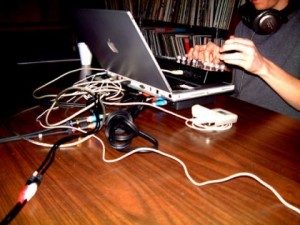 I first bought Traktor Scratch abut two years ago. I bought it because I wanted easy, inexpensive access to new music to mix with. Let’s face it, it’s a hell of a lot more convenient to shop for tracks in the comfort of your own home. You miss out on the social aspects of record shopping, which were always part of the fun, but you can quickly and easily browse through a boatload of tunes at your own pace. It also offered me opportunities to get my hands on music on my want list that is very difficult or expensive to find. Further, I could more easily explore other genres without having to make a big upfront financial commitment. I use it with the virtual time-coded vinyls, which, from an operational perspective, makes it nearly identical to what I do with vinyl. I can even use it with my existing vinyl collection. So for me, it was the best of both worlds.
I first bought Traktor Scratch abut two years ago. I bought it because I wanted easy, inexpensive access to new music to mix with. Let’s face it, it’s a hell of a lot more convenient to shop for tracks in the comfort of your own home. You miss out on the social aspects of record shopping, which were always part of the fun, but you can quickly and easily browse through a boatload of tunes at your own pace. It also offered me opportunities to get my hands on music on my want list that is very difficult or expensive to find. Further, I could more easily explore other genres without having to make a big upfront financial commitment. I use it with the virtual time-coded vinyls, which, from an operational perspective, makes it nearly identical to what I do with vinyl. I can even use it with my existing vinyl collection. So for me, it was the best of both worlds.
Now, I’ve read some of the rants against digital platforms, and I agree to the extent that if someone shows up for a performance with a pre-configured, auto synched set, that is an insult and a load of bullshit. Having said that, I use Traktor exactly like I use my traditional vinyl. I am still beat matching, riding the beat, and am actively involved in the mix. I can’t say I would prefer to take my setup to a gig… there are too many variables for my comfort. But if a Traktor/Serato virtual vinyl configuration was already set up at the location, I think I could roll with this. CDJs have been in place at many venues for several years now.
One thing I think we can all agree on is that technology has played an important role in the DJ arena. The Technics turntable itself was a technological advancement. I can’t imagine what it would be like trying to mix on a pair of 8-tracks. The music most DJs mix is also heavily dependent on technology. From hip-hop and sampling to the more obvious role of technology in electronic music of all forms, technology represents not only how the music was produced, but quite often is associated with the identity of the music itself. Sure, some of the hardware involved, the 808s, 909s, 303s, Moogs, etc. are actually decades old, but producers are always gravitating to new sounds, even if not to new hardware. New patches and new effects are a fundamental aspect of electronic music, regardless of sub-genre. Is it a little odd that a DJ who’s involved with production will embrace the new effects box, the new synth, the new sequencer, but diss a new mixing platform?
What lies ahead? ::
I am curious to see what lies ahead and remain open towards new products and environments. My main concern is that the DJ craft does not get watered down along the way. I share this concern with the strident vinyl die-hards. The bottom line is that while everyone may want to be a DJ, it is only those who put in the time, dedication, work and paying of dues that deserve recognition. In a world of “DJ Hero” and other insta-DJ gimmicks, it is easy to become cynical. I believe if DJ Hero opens up a kid’s mind towards wanting to learn more about the actual DJ craft, then that’s not a bad thing. But if DJ Hero becomes some sort of replacement for the actual art of DJ’ing, then that’s a big problem. Stick with Halo, kid.
There are clearly some additional features available (with digital platforms) – effects, sorting, looping, graphical representations of a song’s waveform makes it a lot easier to find a breakdown in a dark room. These are all cool features that, in the hands of a skilled artist, should definitely add to the toolbox and enhance the performance. At the end of the day, it’s what a performer can do with a set of tools, not the tools themselves, that defines their skill.
I’ve read a number of great threads, posts and opinions from advocates on both sides of the issue. Sometimes the discussion devolves into nothing more than a bitter flame war. People on both sides hold pretty strong viewpoints. So much so, I was a bit hesitant to even write on this topic. The last thing I want to do is alienate anyone. I have friends and associates on both sides of the issue, some even financially invested on one side or the other. People I’ve worked with and people I have a great deal of respect and admiration for. And because I’m presenting the middle path, I could potentially piss off both sides. I heard once, that if you lie in the middle of the road, you are bound to get run over. Yet, as the publisher of this little blog on music and technology, I felt bound to weigh in on the issue and share my perspective. I don’t intend to change anyone’s mind, but I hope I can facilitate acceptance and ease judgments.
Looking back, there have been times I’ve viewed the current environment with a bit of envy. How much easier would it have been to identify and track down certain songs if I had the tools that are available now, back then? How much money could I have saved that could have gone into other investments or even could have made the struggle a little bit more comfortable? How much easier would it have been to promote myself and my mixes with today’s social media? And then I realize that the experiences I went through, the struggles I endured, and the work I put it in, were just as important as any achievements I enjoyed. As this unknown quote states – “Too often we are so preoccupied with the destination, we forget the journey.” When it comes to the great vinyl debate, I am reminded of another great quote from Jane’s Addiction – “Everybody has their own opinions.”
*This article was originally published at mojosdojo.com (March, 2011) and written by Joel Semchuck. As a part of Los Angeles’ distinctive underground root system of the early 90′s, Joel Semchuck (aka DJ Mojo and/or Mojo Rising), mapped the foundations for some heavyweight events in and around Southern California such as F.A M.I.L.Y. and the old-school Insomniac parties (to name a couple). Joel has a BA in Computer Systems with a Minor in Recording Arts and currently has several releases out on Cold Busted and Journees Music.
Photos: DJ Fat John The Gov on vinyl and R/D performing live on Digital::Nimbus radio.






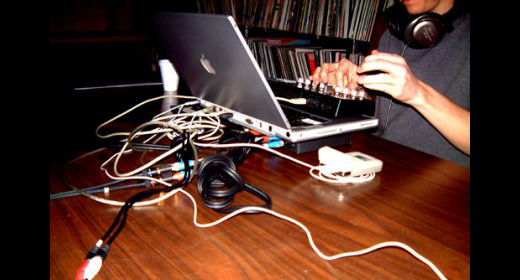
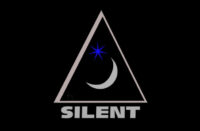




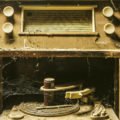
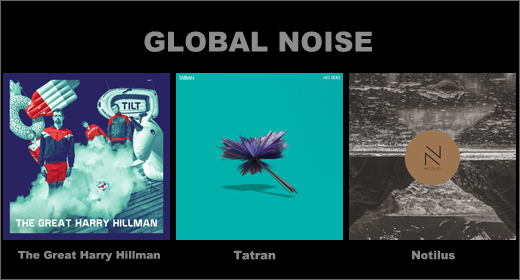
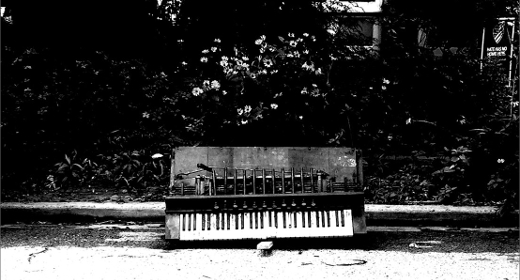
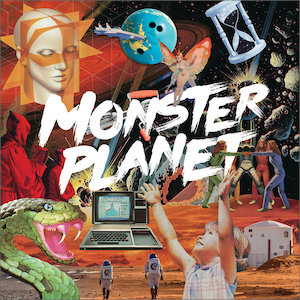

![Romanowitch :: A critical season substitute (glitch.cool) — [concise]](https://igloomag.com/wp/wp-content/uploads/2025/03/romanowitch-a-critical-season-substitute_tape_feat-75x75.jpg)








